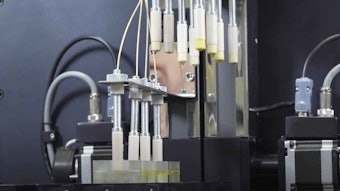Over the past few years, a number of at-home devices have surfaced claiming to treat pimples, promote hair growth and reduce wrinkles, among other claims. The US Food and Drug Administration (FDA) has warned these manufacturers, however, that it will regulate some differently than cosmetics.
It is important to distinguish between cosmetic and medical devices. The definition of a medical device, according to the Federal Food, Drug, and Cosmetic Act is "...an instrument, apparatus, implement, machine, contrivance, implant, in vitro reagent, or other similar or related article, including any component, part, or accessory, which is - (1) recognized in the official National Formulary, or the United States Pharmacopeia, or any supplement to them, (2) intended for use in the diagnosis of disease or other conditions, or in the cure, mitigation, treatment, or prevention of disease, in man or other animals, or (3) intended to affect the structure or any function of the body of man or other animals, and which does not achieve its primary intended purposes through chemical action within or on the body of man or other animals and which is not dependent upon being metabolized for the achievement of its primary intended purposes." [FD&C Act, section 201 (h)]
The FD&C Act requires medical device manufacturers to obtain marketing clearance for their products before offering them for sale [FD&C Act, section 501(f)(1)]. The law does not require clearance or approval to market cosmetic products or ingredients, with the exception is color additives, which are covered separately in section 721 of the FD&C Act.)
In addition, medical devices are subject to the Quality System Regulation (21 CFR part 820). The Consumer Product Safety Commission has jurisdiction over many non-medical devices that people use to affect their appearance, such as manicure tools, hair dryers, cotton-tipped swabs, razors and electric shavers.










